10 Top Cat Dehydration Symptoms & Tips
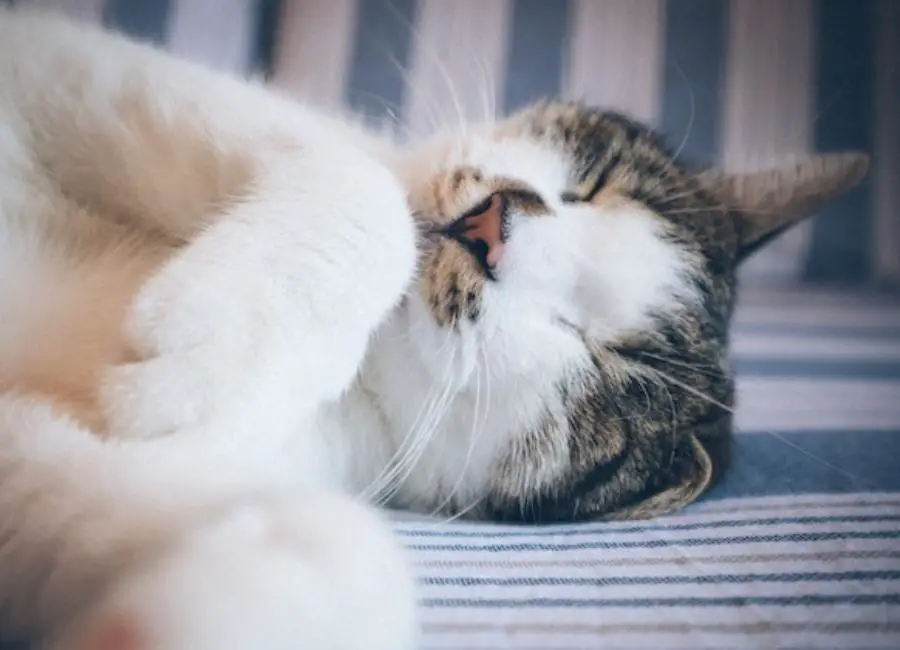
Hey there cat lovers! Today, let’s talk about something that we often overlook when it comes to our feline friends – dehydration.
As adorable as our cats are, they can be quite secretive when it comes to showing they are thirsty. But did you know that dehydration can lead to serious health issues like kidney disease? So, it’s crucial to keep an eye out for the signs.
In this blog post, we will discuss various symptoms of cat dehydration, so you can identify them early and keep your furry friend healthy and hydrated!
Importance of Hydration for Cats
Water is vital for all living beings, and cats are no exception. It plays a crucial role in maintaining their overall health and bodily functions.
Adequate hydration helps in digestion, circulation, temperature regulation, and the elimination of toxins from their bodies.
Cats require a sufficient daily intake of water to prevent dehydration, which can lead to severe health complications if left unaddressed.
Common Cat Dehydration Symptoms
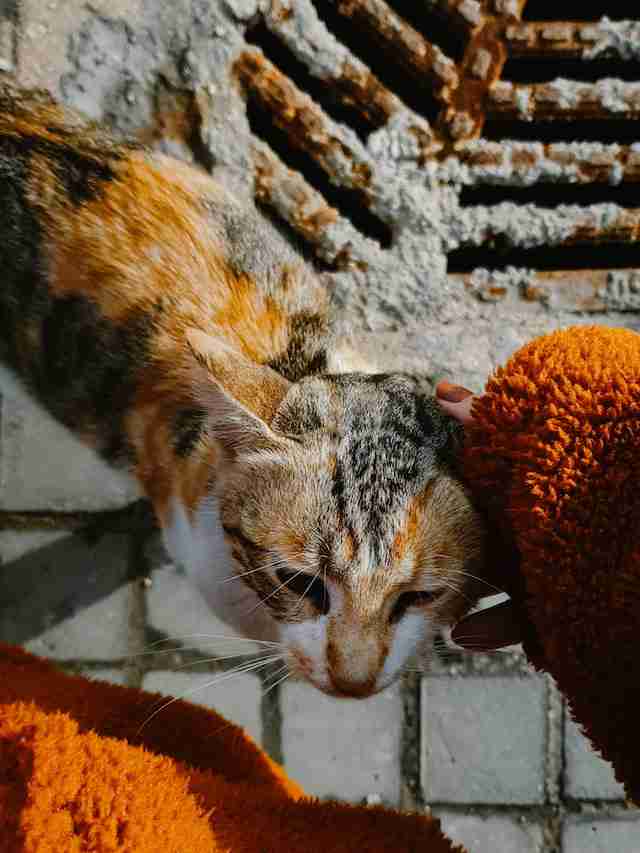
The following are some common cat dehydration symptoms and what to do for each:
1. Lethargy and Weakness
When a cat becomes dehydrated, they may exhibit signs of lethargy and weakness. You may notice them sleeping or lying around more than usual. Their energy levels may decrease, and they may become less playful or interactive. Cats are typically active and inquisitive creatures, so a significant decrease in their energy and enthusiasm is cause for concern.
What to do: To handle this symptom, encourage your cat to drink more water. Cats can be finicky about water sources, so it’s essential to provide them with clean, fresh water in a bowl that is easily accessible. Some cats prefer running water, so consider using a pet fountain to entice them to drink. Additionally, try to engage your cat in gentle play to keep them active and stimulate their interest.
2. Sunken Eyes
Dehydrated cats’ eyes may appear sunken or hollow. A cat’s eyes are normally bright, clear, and full, but dehydration can cause them to lose their sparkle and depth.
What to do: If you notice sunken eyes in your cat, it’s time to act. Dehydration can progress quickly, so try to rehydrate your cat as soon as possible. Provide them with water and keep a close eye on their drinking habits. If their eyes remain sunken or if they exhibit other signs of dehydration, such as dry mouth or lethargy, it is best to seek professional veterinary advice as soon as possible.
3. Dry Mouth and Gums
Dehydrated cats may have a dry mouth and sticky gums. A cat’s mouth is normally moist, and their gums are pink and hydrated. Dehydration can cause your feline friend’s saliva to thicken, causing discomfort.
What to do: You can help your cat feel better by giving them ice cubes to lick or a water-soaked cloth to chew on gently. This aids in keeping their mouth and gums moist. If you notice any redness, swelling, or bleeding in their gums, or if they are in severe pain, contact your veterinarian right away.
4. Decreased Urination
Cats typically urinate several times per day. If your cat is not urinating as frequently or produces less urine than usual, this could be a sign of dehydration.
What to do: It is critical to keep track of your cat’s litter box habits. Keep an eye on their urination frequency and volume. Any significant decrease in urine output could indicate a serious problem. Give them fresh water and encourage them to drink more. If the problem persists, see your veterinarian for a thorough examination.
5. Panting or Rapid Breathing
Cats do not pant like dogs, so observing your feline companion panting or breathing rapidly and shallowly could indicate dehydration or an underlying health problem.
What to do: If your cat is panting, take them somewhere cool and comfortable. Avoid exposing them to extreme heat or direct sunlight. Provide them with water and observe their behavior. Seek immediate veterinary attention if the panting persists or worsens, as it could be a sign of a medical emergency.
Learn more about identifying a traumatized cat.
6. Loss of Skin Elasticity
Dehydration can affect the elasticity of your cat’s skin. You can perform a simple test to check their skin’s hydration level – gently lift the skin on the back of their neck and release it. In well-hydrated cats, the skin will quickly return to its original position. In dehydrated cats, the skin will take longer to return, and it may form a tent-like shape.
What to do: If the skin doesn’t bounce back immediately or stays tented, your cat is likely dehydrated. Seek veterinary care promptly, as severe dehydration can lead to serious complications.
7. Loss of Appetite
Dehydration can cause cats to lose their appetite. If your pet isn’t interested in their favorite treats or meals, it could mean that they’re not feeling well.
What to do: To alleviate this symptom, try feeding your cat wet food instead of dry kibble. Wet food contains more water and can help them consume more fluids. You can also try slightly warming the food to enhance its aroma and make it more appealing to your cat. If the loss of appetite lasts more than 24 hours or is accompanied by other troubling symptoms, you should see your veterinarian.
Learn more about the causes of weight loss in cats.
8. Dry and Sticky Fur
Dehydration can cause your cat’s coat to become dry and sticky. A healthy cat’s fur is usually soft, shiny, and tangle-free.
What to do: Make sure your cat has constant access to clean water to help improve the health of their coat. Groom your cat on a regular basis with a soft brush to remove any loose or dead fur. You can also supplement their diet with Omega-3 fatty acid supplements, which can improve their skin and coat condition.
9. Collapse or Unresponsiveness
In severe cases of dehydration, your cat might collapse or become unresponsive. This is a medical emergency and requires immediate attention.
What to do: If you notice your cat collapsing or behaving unusually, don’t delay seeking veterinary care. Time is critical in such situations, and immediate intervention can make a significant difference in her recovery.
10. Elevated Heart Rate
Dehydration can cause your cat’s heart rate to rise as her body tries to compensate for the lack of fluids. Place your hand on her chest or observe her breathing patterns to determine her heart rate.
What to do: Keep your cat calm and provide water if you notice an elevated heart rate. Because stress can worsen dehydration, create a calm environment for her to relax in. If her heart rate remains elevated or she exhibits signs of distress, seek veterinary assistance immediately.
Learn more about identifying the signs your cat is sick.
Causes of Dehydration in Cats
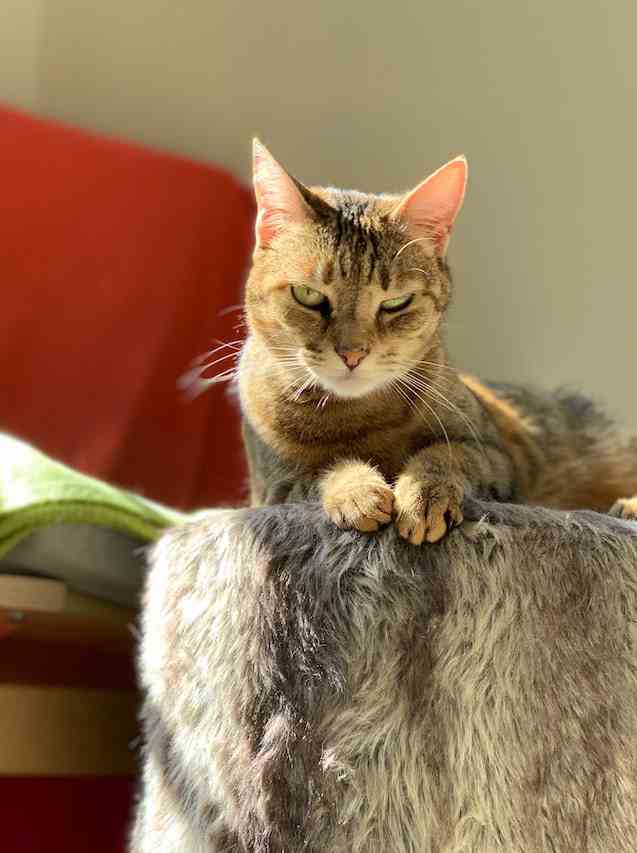
Here are some common causes of dehydration in cats:
- Lack of access to water
- Reduced water consumption due to illness or stress
- Vomiting or diarrhea
- Kidney disease
- Diabetes
- Hyperthyroidism
- Heatstroke
- Inadequate fluid intake during anesthesia
- Excessive urination due to medication or disease
- Side effects of medications.
If you suspect that your cat is dehydrated, it is important to seek immediate veterinary attention.
Learn more about common health problems in cats.
Preventing Dehydration in Cats
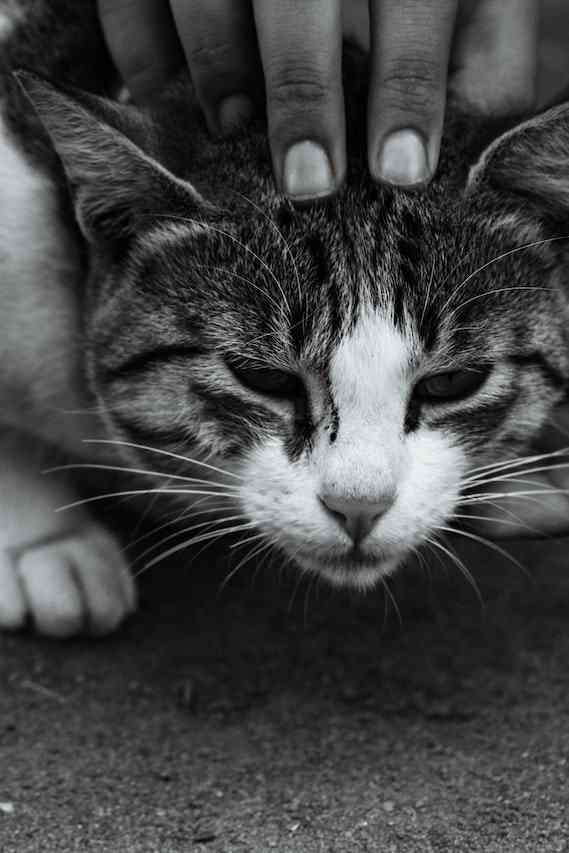
Here are some ways to prevent dehydration in cats:
1. Encourage water consumption: One of the simplest ways to prevent dehydration in cats is to encourage them to drink more water. Ensure that the cat always has access to fresh and clean water.
2. Wet food diet: Feeding cats a wet food diet can help increase their fluid intake, helping to prevent dehydration.
3. Use a cat fountain: Some cats prefer running water and may drink more from a fountain than a bowl. Consider using a cat fountain to encourage your cat to drink more water.
4. Use ice cubes: Adding an ice cube or two to your cat’s water bowl can help encourage them to drink more.
5. Avoid salt: Avoid feeding your cat salty treats or human food, as it can cause them to become dehydrated.
6. Use subcutaneous fluids: Subcutaneous fluids can be given to cats by a veterinarian to help prevent dehydration.
7. Keep the litter box clean: Ensure that the cat’s litter box is clean and easily accessible. A dirty litter box can discourage cats from drinking enough water.
8. Monitor for signs of illness: Keep a close eye on your cat and monitor for any signs of illness that may lead to dehydration. Seek veterinary care if necessary.
9. Protect from extreme temperatures: Ensure that your cat is protected from extreme temperatures, as high temperatures can lead to dehydration. Provide access to a cool and shaded area during the hot summer months.
By following these steps, you can help keep your cat hydrated and healthy.
When to Seek Veterinary Care
If you notice any of the following signs, it’s crucial to seek immediate veterinary care:
- Severe lethargy or weakness
- Extremely dry and sticky gums
- Sunken and dry eyes
- Rapid weight loss
Dangers of Delayed Treatment
Dehydration, if left untreated, can lead to serious health issues like kidney problems and organ failure. Seeking prompt veterinary care is vital to prevent complications.
Learn more about why your cat is not drinking.
Treating Dehydration in Cats
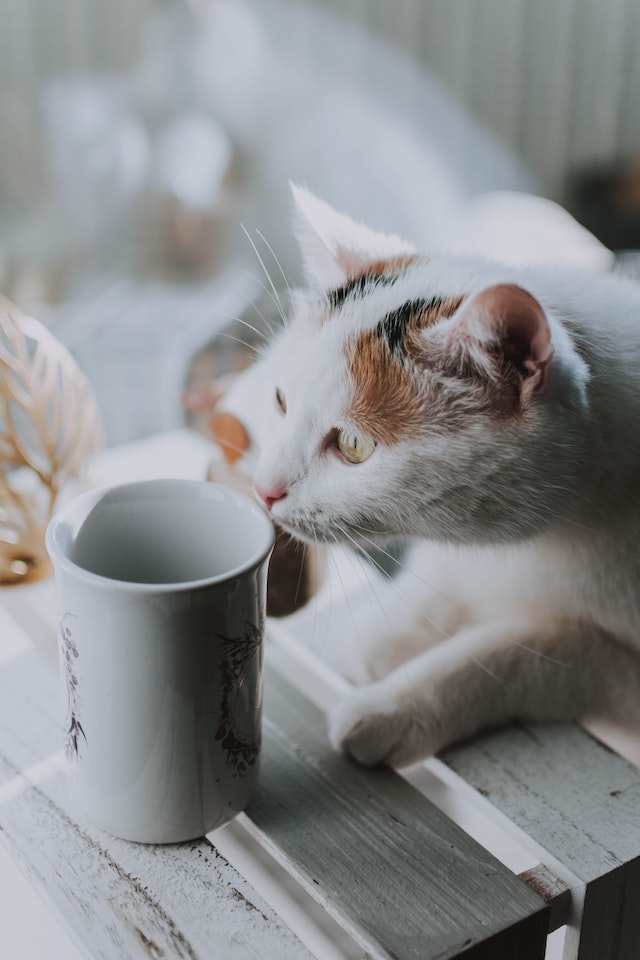
Here are some treatment options that may be recommended by a veterinarian if your cat is dehydrated:
1. Fluid Therapy
The most common way to treat dehydration in cats is through fluid therapy. Intravenous (IV) fluid therapy is the fastest and most effective method of rehydration. In this process, an IV is placed under the cat’s skin and into the vein to administer fluids directly into their body. Cats may need to stay in the hospital for a few days to receive proper fluid therapy until they recover.
2. Oral Rehydration
If dehydration is not severe, oral rehydration may be sufficient. This can be achieved through the administration of non-flavored Pedialyte or a mixture of water and unflavored sodium-free chicken broth.
3. Treating Underlying Causes
It is important to also address the underlying cause of dehydration. If the cause is vomiting or diarrhea, the cat may require treatment for the underlying illness, antiemetics to stop vomiting, or gastrointestinal medication.
It is crucial to visit a veterinarian if you suspect your cat may be dehydrated as dehydration can be a serious and life-threatening condition if left untreated.
Related Questions
How can I tell if my cat is dehydrated?
You can check your cat for dehydration by gently pinching the skin on the back of their neck and letting it go. If the skin doesn’t snap back into place immediately, or instead forms a tent-like shape, it is a sign that your cat is dehydrated.
Can severe dehydration be life-threatening for cats?
Yes, severe dehydration can be life-threatening for cats as it can lead to organ failure, shock, and even death. That’s why it’s crucial to keep your cat well-hydrated, especially during hot weather or if they are suffering from an illness.
How much water should a cat drink in a day?
Cats should drink at least 2.5 to 4.5 ounces of water per 5 pounds of body weight per day, but this can vary depending on their activity level, diet, and overall health. Make sure to provide fresh water available at all times and monitor your cat’s drinking habits closely.
Can dehydration be a sign of an underlying medical condition in cats?
Yes, dehydration can be a sign of an underlying medical condition in cats such as kidney disease, diabetes, or gastrointestinal issues. If you notice your cat showing signs of dehydration, it’s advisable to consult a veterinarian for a comprehensive diagnosis and treatment plan.
Are there any preventive measures to keep my cat from becoming dehydrated?
Yes, some of the preventive measures include providing clean and fresh water at all times, incorporating moist food into their diet, ensuring a cool and comfortable environment, and monitoring their water intake, especially during hot weather or when they are sick. Making these small changes can go a long way in keeping your cat healthy and properly hydrated.
Conclusion
In conclusion, recognizing the signs of dehydration in your cat is crucial for their health and well-being. Some of the most common symptoms include lethargy, dry gums, and sunken eyes.
Paying attention to your cat’s water intake and checking for these symptoms will help keep them hydrated and healthy.
Remember, prevention is always better than treatment. So, keep an eye out for these symptoms and make sure your furry friend is always hydrated!
